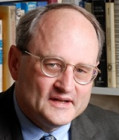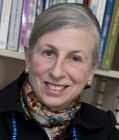Unequal Citizen Voice and the Broken Promise of American Democracy
Connect with the author
Democratic ideals require that the needs and preferences of all citizens receive equal consideration – and also that citizens speak up equally. No actual democracy fulfills these ideals – and America certainly falls short. All U.S. citizens potentially can vote and influence elections, organize to express shared interests, and contact public officials. But in practice, the voices of the affluent and better educated sing loudly in politics, while the voices of others are muted or silent.
Our research aims to document inequalities in the U.S. political arena as systematically as economists and other scholars have documented gaps in wealth and income. We have pulled together national surveys that track participation by individual citizens. And we have assembled the largest data base of interest organizations ever assembled – tracking some 35,000 U.S. organizations active over a twenty-five year period, including not only membership associations like unions, professional associations, trade associations, and citizens’ groups, but also corporations, hospitals, and even universities. We ask the same questions about organizations as about individuals: Which interests are voiced, through what kinds of activities? And how equally, or unequally, are different interests represented in U.S. politics?
Persistent Advantages for the Affluent and Well-Educated
The bottom line from our research is unequivocal. The well-educated and affluent have long enjoyed powerful megaphones to amplify their political voices. Large class-based gaps have been a feature of U.S. politics at least since the early 1950s, when national surveys started.
- Inequalities in various kinds of participation have gone up and down – but not in any clear-cut relationship to economic inequalities. As economic gaps have grown, the well-educated and affluent have enjoyed persistent advantages in voting, giving money, and contacting officials. However, judicial decisions like Citizens United could unleash more money in politics and usher in an era of even great domination by the most affluent.
- Inequalities in participation also persist across generations. Americans with well-educated parents are much more likely to become politically active adults, because they have been introduced to politics and usually attain high levels of education themselves.
What about the Internet and Social Movements?
When we present our findings, hands invariably pop up in the audience to pose hopeful counterpoints. Will the Internet and electronic social media make citizen voices more equal? Do social movements enhance equality? The evidence does not bear out such hopes.
- The Internet and social media have opened up new possibilities for communicating with large numbers of people and quickly mobilizing them to become active in politics. But even though requests for political activity are now more likely to arrive digitally than by phone, the tilt toward the more affluent and educated remains.
- Social movements are newsworthy because they raise new issues and involve freshly mobilized activists. But class cleavages can actually become more pronounced, because movement activism grows out of the same sorts of processes by which friends and relatives, fellow church members, and co-workers ask one another to get involved in politics. Those who initiate engagement of any sort seek out people who are likely to agree to join them and are likely to participate effectively – by, for example, making a large campaign donation or writing a compelling e-mail. Research reveals that political activities undertaken in response to requests are actually more class-stratified than more spontaneous activities. Money solicited and donated in politics is a case in point. Sixty percent of political dollars contributed in response to requests – compared to one-third of the dollars contributed spontaneously – turn out to be donated by affluent Americans with incomes in the top fifth of the income ladder.
Organizations Tilt the Playing Field Even More
Organizations active in Washington DC make political expression more unequal. Thousands of groups speak for a variety of interests, but organizations representing people with ample political resources and deep pockets – in particular, business interests – vastly outnumber organizations speaking for the middle class or the poor, or advocating broad liberal or conservative goals.
- Occupational associations abound, yet apart from unions not a single such organization represents the shared concerns of ordinary workers such as office receptionists, Wal-Mart associates, parking lot attendants, bellhops, telemarketers, laundry workers, or van drivers.
- A few professionally run organizations advocate for the poor. But no organization brings together recipients of means-tested benefits such as Medicaid or food assistance; and no organizations representing parents of children in Head Start programs, women at home, criminal defendants awaiting trial, or workers whose company pensions are in jeopardy.
- Counting dollars rather than organizations reveals greater gaps. Seventy-two percent of the billions spent annually on DC lobbying flows from organizations representing businesses, while only two percent is spent by public interest advocates, one percent by unions, and less than one percent by organizations advocating for the poor or social welfare programs.
In sum, by looking at organizations as well as individuals – and by probing new and unconventional as well as traditional forms of politics – our research thoroughly documents the cumulative and durable advantages of political voice enjoyed by affluent and well-educated Americans. Their advantages persist through time and across generations, and play out in many kinds of politics, especially organized efforts. Enduring and cherished American ideals proclaim that all citizens are equal. But the United States has persistently fallen far short of that – and our nation has much to accomplish if we are ever to move closer toward practicing the democratic ideals we preach.
Read more in Kay Lehman Schlozman, Sidney Verba, and Henry E. Brady, The Unheavenly Chorus: Unequal Political Voice and the Broken Promise of American Democracy (Princeton University Press, 2012).

